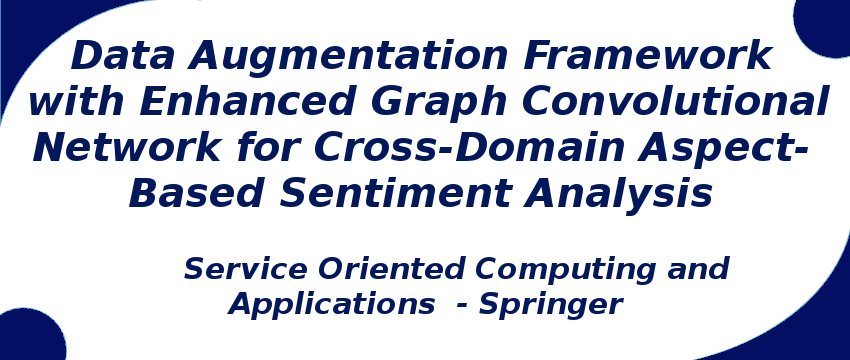Research Area: Machine Learning
Cross-domain Aspect-Based Sentiment Analysis (ABSA) aims to jointly extract aspect terms and their corresponding sentiment polarities in the target domain by leveraging knowledge from the source domain. To address this challenge, an unsupervised domain adaptation framework called Cross-Domain Data Augmentation (CDDA) has been proposed. The main idea is to use labeled source domain data to generate a large amount of labeled target domain data, thereby bridging the gap between domains. However, previous methods that applied CDDA often did not fully utilize the general knowledge such as linguistic features in the source domain, and the quality of the pseudo-labels annotated by the base model led to low quality of the subsequent generated data. In this paper, we propose a Data Augmentation Framework with Enhanced Graph Convolutional Network (DAEGCN) for cross-domain ABSA. This model can effectively obtain domain-specific segments information and linguistic feature knowledge, and uses a domain adversarial neural network to reduce the differences between the two domains, and then uses a graph convolutional network to learn and annotate pseudo-labels for the target domain. Then, the model removes fragments of nouns and adjectives in the text of the two domains and uses them as inputs to the BART model for training, generating labeled data in the target domain as the final augmented data. Experimental results on four different domain datasets show that DAEGCN achieves better results than other domain adaptation methods.
Keywords:
Author(s) Name: Rui Yu, Hongbin Xia & Yuan Liu
Journal name: Service Oriented Computing and Applications
Conferrence name:
Publisher name: Springer
DOI: 10.1007/s11761-024-00432-9
Volume Information: Volume: 9, (2024)
